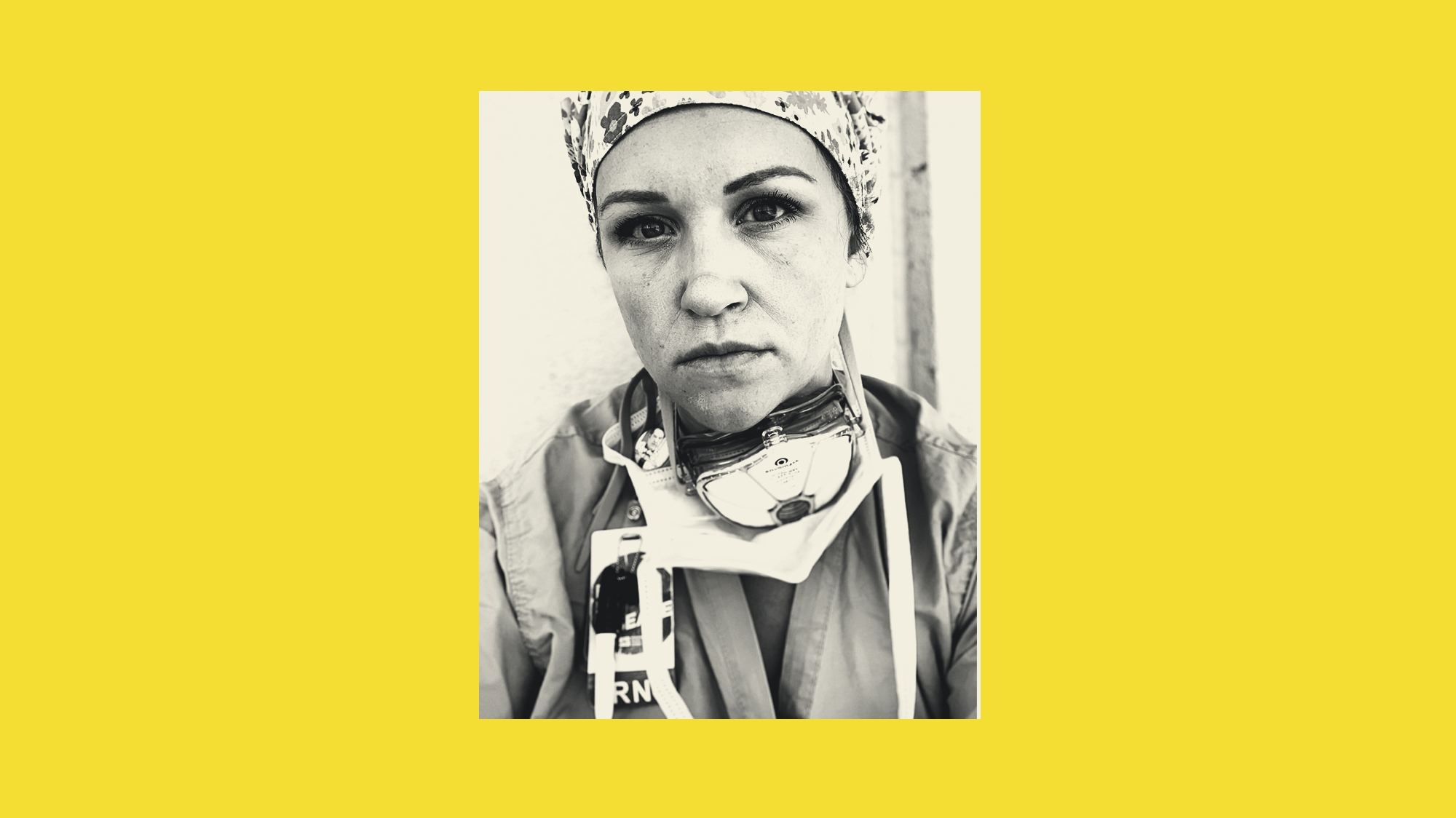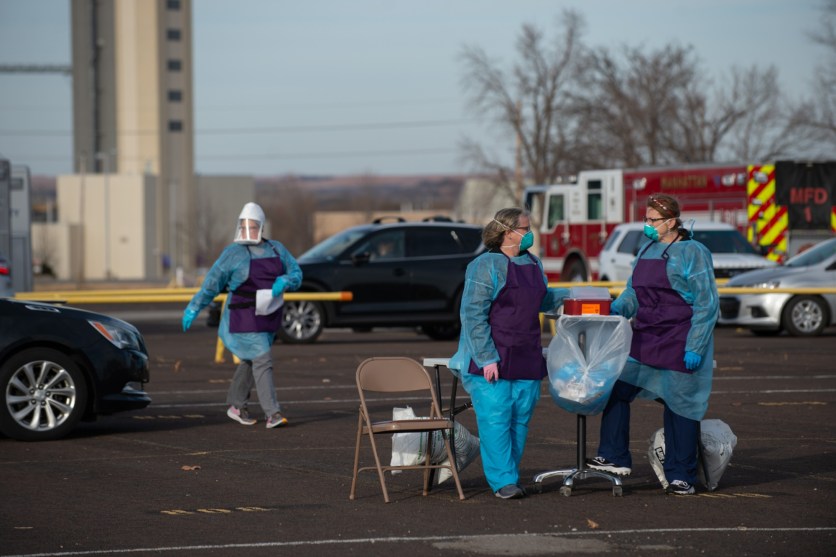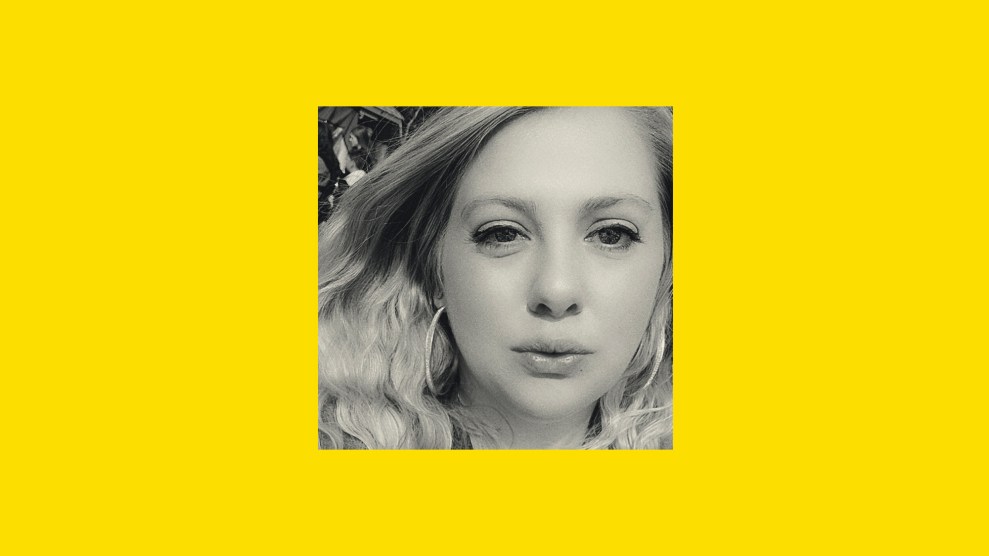Ashley Bartholomew, 35
Position: Nurse
Started: October 2019
Quit: November 2020
Salary: $35.00 per hour
As told to Andrea Guzmán
A parent without child care, Ashley Bartholomew was preparing to resign from her role in El-Paso as a nurse when cases of COVID-19 spiked. Seeing the influx of patients—in 2020, the urban counties west of the Mississippi River with the highest per-capita COVID-19 death rate were the Texas border counties of Hidalgo and El Paso—she delayed. In the final moments, she met a patient who believed COVID-19 is no worse than the flu.
I didn’t know that the thread would go as viral as it was going to. I had been planning to resign—we’re a military family and with child care and stuff, it wasn’t going to be sustainable for me to continue to work with three little kids we’re moving soon too. So, I needed to resign.
I’m an RN in El Paso and was recently transferred from the OR to COVID ICU.
I resigned from my job last week and I’ve been asked several times, “What was the breaking point?” I don’t know a specific one, but I’ll share this: a thread 🧵1/
— Ashley B., BSN, RN (@TheBlondeRN) November 16, 2020
The day prior, I went into work and the administration came to us at the front desk and said, “We’re closing down the OR. We’re only going to run two rooms for emergencies and everyone else needs to be redeployed to the COVID-19 units.” That’s the day that I went to COVID-19 ICU. And I saw first-hand just how busy and how crazy it was over there. They had a huge influx of patients with a lag of waiting for the travel FEMA nurses to get on board and get running. I was like “Wow, they need all the help they can get.” I actually told my boss and was like, “Hey, I can take three more weeks…just put me in the main COVID-19 ICU for my shifts and I’ll pick up some extra shifts and I’ll stay until November 13.”
It was my last shift, and I went into this patient’s room to check his glucose. He was awake and alert. He was being transferred to a lower level of care; he was doing well enough to where he didn’t need to be in ICU anymore. He was definitely—definitely—the exception to all the other patients I had seen that day. It was lunchtime and the news was on. And he kind of referenced towards the TV like, “Oh, fake news.” I was shocked. I thought to myself wow, we’ve really dropped the ball, or we’ve missed something—a key ingredient here—if this patient is thinking this isn’t any more than a flu and he should’ve just taken his vitamins.
I started to wonder…is this person thinking clearly? Just the power of denial, even as a coping mechanism, was surprising to me. He was thinking clearly, I realized, after a little bit more conversation. That’s when I was just kind of honest with him and said, “This is my last shift and I’ve never seen so much death and so much sickness my entire 10 years of being in healthcare combined.” He was just like “Woah, really?” And I’m like “Yeah, this has been unlike anything I’ve ever seen.”
That’s when he asked how other people were doing and if a lot of people had died, and I said “yeah.” And he said, “Well, that must be really hard.”
When he changed from the pure denial to validating “wow, that must be hard” it made me cry. I think that was kind of the only response that I could have because it was so overwhelming to me in the moment. And then I apologized, I said, “sorry I don’t mean to tear up in front of you.”
















